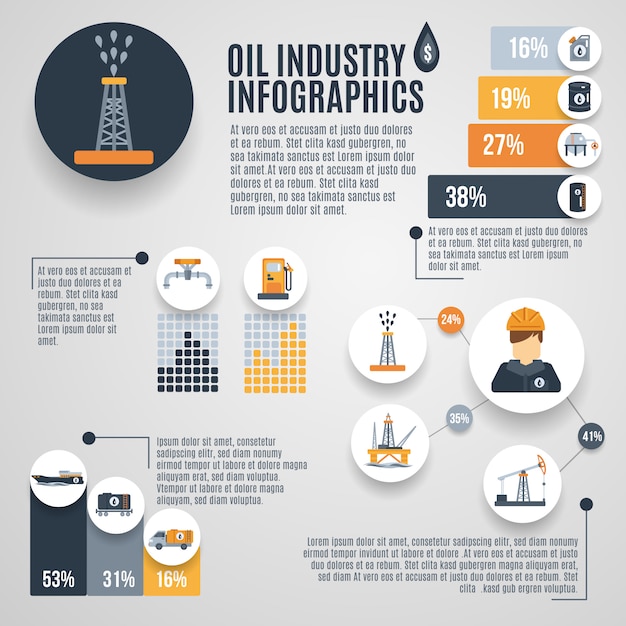Interesting Facts About Oil

Oil has been used throughout history for various purposes, from lighting lamps to fueling engines.
The discovery of oil revolutionized the world’s transportation industry.
Oil is a non-renewable resource, meaning it will eventually run out.
Many countries heavily rely on oil exports to drive their economies.
Oil spills can have devastating effects on the environment and wildlife.
The price of oil fluctuates frequently due to supply and demand.
Oil is often referred to as black gold due to its high value.
The invention of the internal combustion engine led to a surge in the demand for oil.
Oil drilling can have detrimental effects on ecosystems, such as destroying habitats.
Oil production and consumption contribute to air pollution and climate change.
Oil is a major component in the production of plastics and other synthetic materials.
The largest oil reserves in the world are found in Saudi Arabia.
The United States is the world’s largest consumer of oil.
In 2019, global oil production reached a record high of 100 million barrels per day.
Oil has been a leading cause of conflicts and geopolitical tensions throughout history.
The process of refining oil involves separating various components to produce different products such as gasoline, diesel, and jet fuel.
Oil exploration and extraction can have negative impacts on local communities, including displacement and social disruptions.
Interesting Facts About Oil part 2
The term petroleum is derived from the Latin words petra, meaning rock, and oleum, meaning oil.
The first oil well was drilled in Pennsylvania, United States, in 1859.
Oil has been a major driver of economic growth in countries like Norway and the United Arab Emirates.
Oil spills can take decades or even centuries to fully recover from, causing long-term damage to ecosystems.
The demand for oil is expected to decline in the future due to advancements in renewable energy technologies.
Oil exploration often involves seismic surveys to locate underground oil deposits.
Offshore drilling poses additional risks to marine life and coastal ecosystems.
The Organization of the Petroleum Exporting Countries (OPEC) plays a significant role in influencing global oil prices.
Oil prices are influenced by factors such as political instability, natural disasters, and economic trends.
Oil is often transported via large tankers across oceans, posing potential risks of spills and accidents.
Oil has been used medicinally for centuries, with applications such as treating skin conditions and promoting hair growth.
Oil sands, also known as tar sands, are a type of unconventional oil source that requires specialized extraction methods.
Oil-rich countries have often been targets of foreign interventions and conflicts.
Oil is a highly flammable substance and requires careful handling and storage.
The oil industry employs millions of people worldwide in various sectors, from exploration to refining and distribution.
Hydraulic fracturing, or fracking, is a controversial method used to extract oil and gas from underground rock formations.
Oil spills not only harm marine life but also impact commercial fishing industries and tourism.
The transportation sector is the largest consumer of oil, with cars and trucks accounting for a significant portion of oil demand.
Many oil-producing countries have experienced boom-and-bust cycles due to their dependence on oil revenues.
Oil can be used as a lubricant to reduce friction between moving parts.
Oil is often used as a cooking and frying medium, although healthier alternatives like olive oil are gaining popularity.
The oil industry has led to the development of advanced technologies such as offshore drilling rigs and deep-sea exploration equipment.
Oil prices have a direct impact on inflation rates and the cost of living in many countries.
Oil spills can contaminate drinking water sources, making them unsafe for human consumption.
The discovery of oil reserves can bring both economic prosperity and environmental challenges to a region.
Oil-rich nations often face challenges associated with corruption and political instability.
Continuous technological advancements are improving the efficiency of oil extraction and refining processes.
Oil scarcity in the future could result in a shift towards cleaner and more sustainable energy sources.

